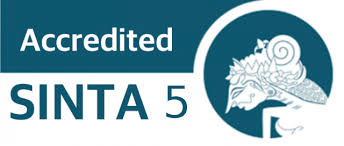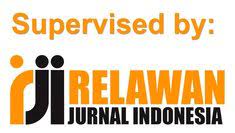ANALISA LAYANAN FRONT OFFICE DALAM MENCIPTAKAN KEPUASAN TAMU DI HOTEL KIRANA YOGYAKARTA
DOI:
https://doi.org/10.51977/jsm.v6i1.1548Keywords:
Guest Relation Officer, Hotel, Satisfaction, Service QualityAbstract
Front office menjadi departemen yang berperan penting dalam pelayanan tamu. Departemen ini memiliki beberapa divisi, seperti: greeter and bell boy, front desk attendant, telephone operator dan guest relation officer. Sebagai salah satu bagian dari front office, keberadaan guest relation officer (GRO) sangatlah penting. Salah satu tugas penting yang dijalankan adalah memastikan tamu mendapatkan layanan terbaik. Standar layanan yang jelas perlu disusun untuk menciptakan kepuasan. Penelitian ini bertujuan untuk melihat standar layanan yang diberikan guest relation officer dalam menciptakan kepuasan tamu hotel. Desain kualitatif dengan pendekatan studi kasus digunakan dalam penelitian ini. Fokus penelitian ini membuka selubung praktek layanan Guest Relation Officer (GRO) pada Hotel Kirana Yogyakarta. Kegiatan wawancara semi terstruktur digunakan dalam penelitian ini. Beberapa instrument menjadi tema utama antara lain: responsiveness, reliability, assurance, empathy dan tangible. Informan dalam penelitian ini adalah staff Guest Relation Officer yang berjumlah tiga orang. Metode Miles Huberman dan Triangulasi digunakan dalam analisa dan validasi data penelitian. Beberapa instrument yang digunakan telah sepenuhnya diterapkan oleh Hotel Kirana Yogyakarta. Instrument tersebut secara nyata menjadi aspek yang mampu menciptakan kepuasan tamu. Hasil penelitian ini dapat digunakan sebagai panduan dalam menerapkan konsep layanan berkualitas guna menciptakan kepuasan tamu.
References
Alamsyah, D., Mexitalia, M., Margawati, A., Hadisaputro, S., & Setyawan, H. (2017). Beberapa Faktor Risiko Gizi Kurang dan Gizi Buruk pada Balita 12-59 Bulan (Studi Kasus di Kota Pontianak). Jurnal Epidemiologi Kesehatan Komunitas, 2(1), 46. https://doi.org/10.14710/jekk.v2i1.3994
Anggraeni, E., Palupi, M., & Ayustina, A. A. (2021). Description Of The Nutritional Status Of Children During The Covid-19 Pandemi In Semanding Village, Pagu District: GAMBARAN STATUS GIZI BALITA PADA MASA PANDEMI COVID-19 DI DESA SEMANDING KECAMATAN PAGU. Jurnal Gizi KH, 1(1).
Apriliawati, A., Purwati, N. H., Sutini, T., Awaliah, A., Astuti, M. A., Adharani, Y., ... & Safitri, Y. (2021, February). Edukasi dan Skrining Gizi Balita Berbasis Aplikasi STRONGKids. In Prosiding Seminar Nasional Pengabdian Masyarakat LPPM UMJ (Vol. 1, No. 1).
Gunawan, G., & Ash shofar, I. N. (2018). Penentuan Status Gizi Balita Berbasis Web Menggunakan Metode Z-Score. Infotronik : Jurnal Teknologi Informasi Dan Elektronika, 3(2), 118. https://doi.org/10.32897/infotronik.2018.3.2.111
Minkhatulmaula, Pibriyanti, K., & Fathimah. (2020). Faktor Risiko Kejadian Gizi Kurang pada Balita di Etnis Sunda. Sport and Nutrition Journal, 2(2), 41–48. https://journal.unnes.ac.id/sju/index.php/spnj/article/view/39763
Nindyna Puspasari, & Merryana Andriani. (2017). Hubungan Pengetahuan Ibu tentang Gizi dan Asupan Makan Balita dengan Status Gizi Balita (BB/U) Usia 12-24 Bulan. Amerta Nutrition, 1(4), 369–378. https://doi.org/10.20473/amnt.v1.i4.2017.369-378
Nursalam. (2017). Metodologi Penelitian Ilmu Keperawatan (P. P. Lestari (ed.); 4th ed., p. 49). Salemba Medika.
Pasambo, Y. (2018). Gambaran Status Gizi Balita Di Rt 03 / Rw 09 Kelurahan Barombong Kecamatan Tamalate Kota Makassar. Media Kesehatan Politeknik Kesehatan Makassar, 13(1), 1. https://doi.org/10.32382/medkes.v13i1.66
Putri, N. E., Andarini, M. Y., & Achmad, S. (2021). Gambaran Status Gizi pada Balita di Puskesmas Karang Harja Bekasi Tahun 2019. Jurnal Riset Kedokteran, 1(1), 14–18. https://doi.org/10.29313/jrk.v1i1.108
Pibriyanti, K. FAKTOR YANG BERHUBUNGAN DENGAN KEJADIAN GIZI KURANG PADA ANAK BALITA.
Saputro, D., & Utami, K. (2020). Gambaran Status Gizi Pada Balita Di Desa Sidoagung Godean Sleman Yogyakarta. 386(2), 1–6. http://repository.unjaya.ac.id/3765/
Suharidewi, I. G. A. T., & Pinatih, G. I. (2017). Gambaran Status Gizi Pada Anak TK Di Wilayah Kerja UPT Kesmas Blahbatuh II Kabupaten Gianyar Tahun 2015. E-Jurnal Medika Udayana, 6(6), 1–6.
Yuhansyah, M. (2019). Gambaran Tingkat Pengetahuan Ibu tentang Gizi Pada Anak Balita di Upt Puskesmas Remaja Kota Samarinda. Borneo Noursing Journal, 1(1), 76–82.









